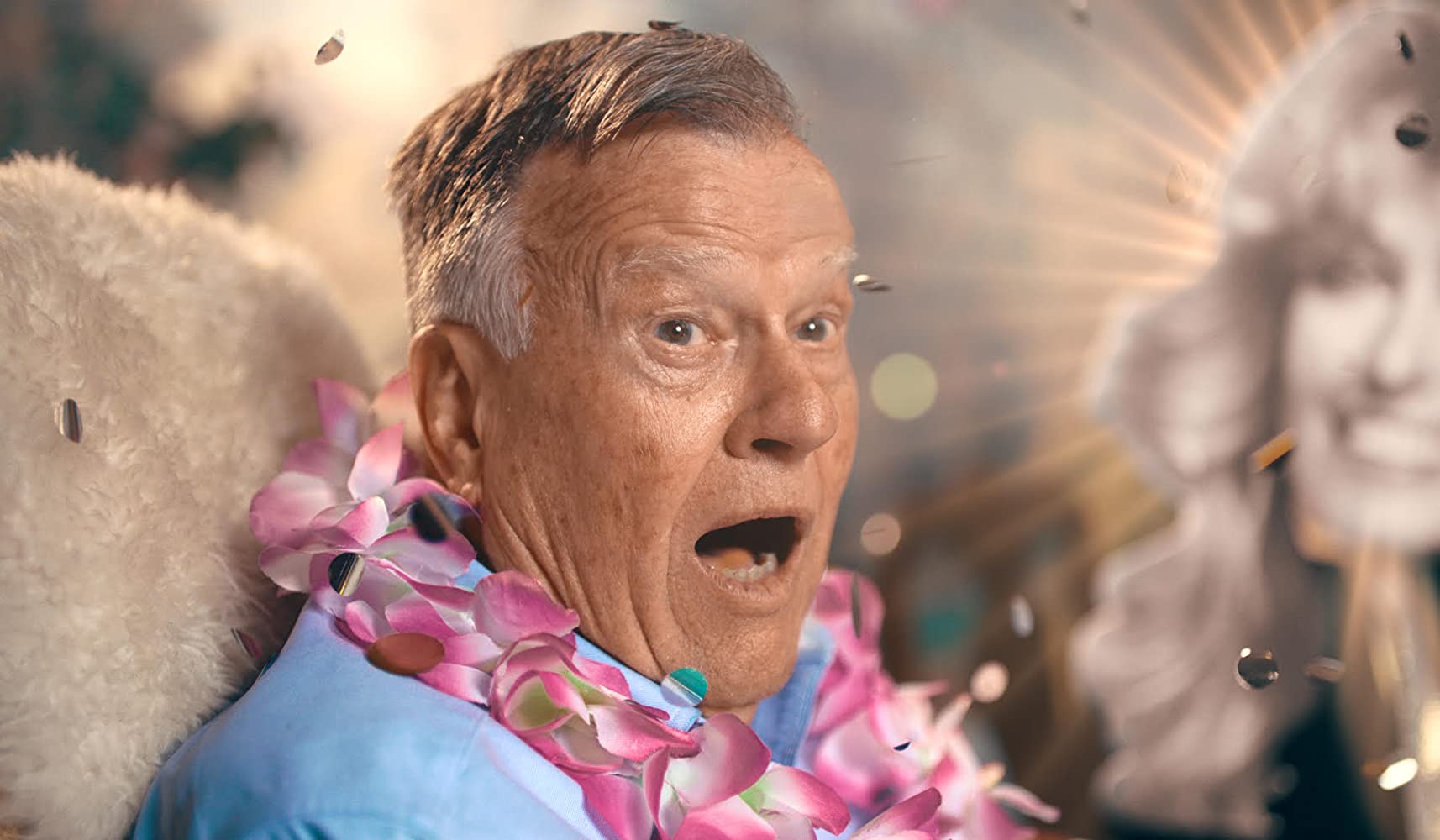You have to stare death in the eyes. Even if you have the privilege to avert your gaze until your last moment, we all have to stare it down at some point, so you might as well get some practice before it’s your turn. In times like ours, though, when civil unrest and global disaster have acquainted even the privileged with the tenacity of mortality, blissful ignorance may seem like an enticing alternative. But the dying deserve more than our complacency. So, how do we approach the subject without lapsing into despair and inaction? You’ll find no manual more instructive than Dick Johnson Is Dead.
Dick Johnson is the father of Kirsten Johnson, documentarian and director of the film. He’s also, as you may have heard, dead. Sort of. When her father’s dementia became more of a tangible threat to his health, Kirsten decided to unsheathe her camera and record his final years, but not in a traditional sense. She’s an experimental filmmaker—her last doc, Cameraperson, was a look into the relationship between documentarian and subject—and she’s taken the brave step of experimenting with her own grief for our edification. And for, amazingly, our enjoyment: her idea is to stage elaborate “deaths” for her dad, on camera, to help the duo come to terms with the real thing. You won’t see Dick Johnson die in Dick Johnson Is Dead, but you will see a downstairs tumble “kill” him, among other things.
It’s black comedy for those who like their chocolate with 70% cacao. If you’re of a sweeter persuasion, worry not: Dick Johnson himself has you covered. Despite his circumstances, Dick’s on-screen presence is a source of infectious glee—you couldn’t have written a sweeter guy. He emanates warmth like he invented it. In a wise move, Kirsten hitches the tone of the doc to her dad’s demeanor, adopting his penchant for cheering people up without cheapening their pain. That Kirsten walks this tonal tightrope with such finesse is at first astounding, but it doesn’t take long to discover where her skills were inherited from. Repeatedly dying couldn’t happen to a better person.
Kirsten and Dick’s love for each other is palpable enough to carry an entire movie, and the scenarios they put together to kill Dick off can be uproariously funny. If Dick Johnson Is Dead consisted of those two things alone, it would already border on greatness. But Kirsten pushes further. The artifice of the production is constantly highlighted, sometimes through classic signals like a boom mic entering the shot, sometimes by tossing the pretense aside completely and letting us watch Dick chat up the boom operator. When Kirsten builds a set that actualizes dementia as a physical space, she doesn’t just show us Dick wandering around the set—we get to see footage of the set being built, to hear her explain how she thought the experiment went. Dick Johnson Is Dead is a movie about dealing with death, but it’s also a movie about dealing with death through a movie. By heavily incorporating her process into the finished product, the cameraperson never lets us forget an underlying question: why must we stare death in the eyes through a lens?
The flaws of this indirect approach are woven into the film itself. As Dick’s mind starts to go, the wacky death setups become few and far between, and the promised structure of the film starts to sag. Kirsten’s narration sounds less and less sure of what her experiment is trying to accomplish. And yet, the film works—not despite these weaknesses, but because of them. Kirsten, who’s been operating on a meta level from the outset, acknowledges through sublime imagery and cinematic sleight of hand that she was never going to give us a profound conclusion. And thank god for that. It is an understandable, universal, human weakness to peek at death through a lens, as seeing it on its own terms can destroy us, and that’s not worth some grand takeaway. Dick Johnson Is Dead imparts that lesson by being the lens through which we see death, just as making the film was that lens for Kirsten. The image will be obscured and imperfect, but it will leave us intact. That’s what makes this morbid movie the most comforting and human experience of the year.
★★★★★ (5/5)




